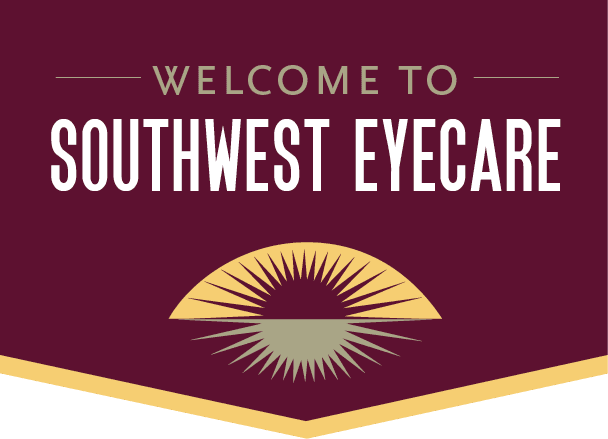Vision Conditions & Corrections - Albuquerque
Call them vision conditions or refractive errors, the fact is that not everyone has 20/20 vision. Whether you’re hyperopic (farsighted), myopic (nearsighted), have astigmatism (blurred vision) or presbyopia (you’ve lost the ability to focus on close up objects as you’ve grown older), Southwest Eyecare’s specialists have options to improve your vision.
Non-surgical treatment options for many of these conditions include glasses and contact lenses. While there are numerous surgical options available, not all individuals are good candidates for specific procedures. Patients should review these options in depth with their eye doctors.
Farsightedness (Hyperopia) & Nearsightedness (Myopia)
Farsighted patients can focus on more distant objects, but not images that are close at hand. If you’re nearsighted, you can see clear images of near objects but things far away are blurry. Both hyperopia and myopia can be treated with several laser and non-laser surgical treatments, as well as non-surgical treatment options like glasses and contact lenses.
Astigmatism (Blurred Vision)
There are several types of astigmatism, including regular, mixed and irregular. In all cases, astigmatism makes it difficult to see fine details, either close-up or from a distance. Currently, lasers surgery can treat both regular and mixed astigmatism. Recent advances in technology now allow for the therapeutic treatment of induced irregular astigmatism, and this application may be expanded to include all types of irregular astigmatism. Patients with astigmatism should discuss their options with their eye care specialist.
The Aging Eye (Presbyopia)
Presbyopia is a natural part of the aging process and affects everyone, usually becoming noticeable as people enter their 40s. The eyes’ lenses lose elasticity, resulting in a slow decrease in the ability of the eye to focus on nearby objects. This is why you may need to hold reading material further away for it to become clear. Presbyopia can be corrected with glasses or contact lenses. New surgical procedures can also provide solutions for those who do not want to wear glasses or contacts.
Vision Plan Coverage
As ophthalmologists, our practice focus is on medical and surgical Eyecare. Should you prefer to see one of our physicians for your routine exam, we are unable to file claims to your vision plan. Additionally, it is inappropriate to file Vision claims to your medical plan. Payment for your visit will be expected at the time of service and appropriate documentation will be supplied to allow you to file a claim with your Vision Plan for reimbursement.
